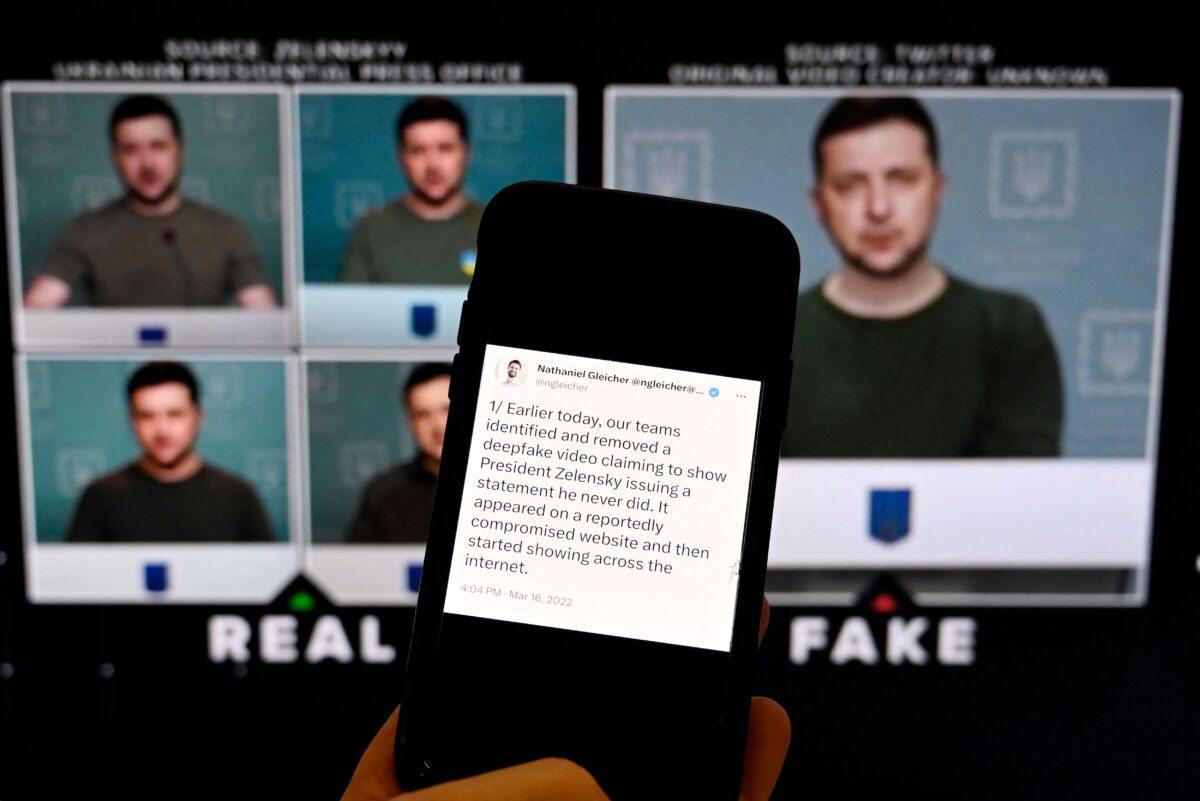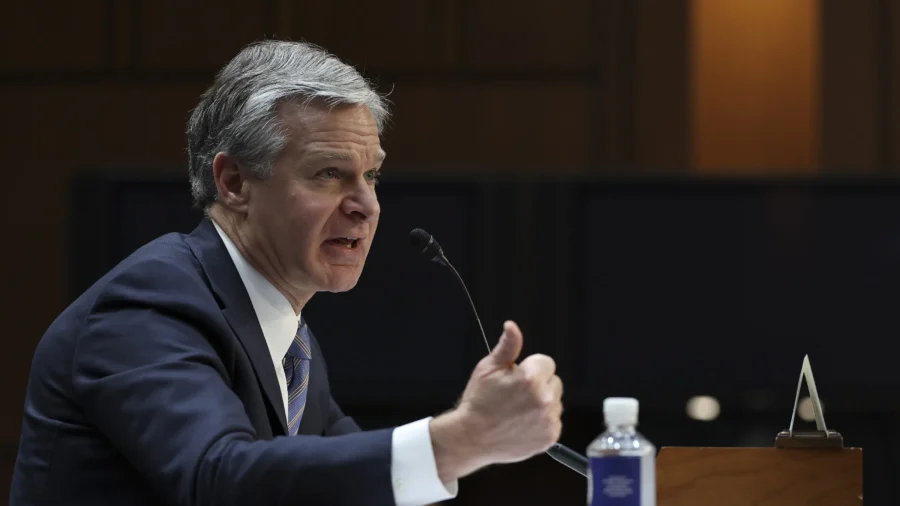FBI Director Christopher Wray guaranteed election security during a roundtable discussion on how his agency, along with others, is partnering with public and private entities to combat misinformation and disinformation.
Mr. Wray praised his partnership with Paul Nakasone, the National Security director and commander of the United States Cyber Command, who also attended the discussion.
“On one level, information warfare, disinformation, misinformation, has been around for decades,” Mr. Wray said. “What you saw a decade and a half ago was the use of social media as the next escalation. It wasn’t a new weapon, it was just a new way of making that weapon more effective.”
Generative AI and deepfake technology have raised information warfare to a more advanced level and it’s now easier for influence actors to create more credible fake personas with sophisticated false messages, and to manufacture evidence that’s harder to discern as false, he said.
In the effort to combat this, Mr. Wray said the FBI is strengthening its partnerships with the private sector, including companies that produce generative AI. He emphasized the importance of collaborating with other government agencies and the research community.
Mr. Wray clarified that the FBI’s role is not to interrogate the content of the information, but to go after the source.
“We’re not the truth police and we don’t aspire to be,” he said. “What we’re focused on is hostile foreign intelligence services creating fake personas attempting to persuade people that there’s someone appearing to be American when they’re actually Chinese, the Russian, or Iranian intelligence services. And so what we try to do together is ferret that out and then share it with people who need to know about it.”

Election Security
Mr. Wray said that despite the potential threats, Americans can have confidence in the election system.
“Most of the things we’ve seen in terms of election threats, for example, in terms of cyber threats, are focused on parts of election infrastructure that wouldn’t have any impact on the counting of the vote,” he explained.
“But the bigger concern is the ability of foreign adversaries to create chaos and lack of confidence, even when confidence should otherwise be there, which then creates almost a futility effect for voters in terms of whether they think their vote is going to be counted. So, it’s not a question of the integrity of the election itself being impacted so much as it is a question of affecting Americans’ confidence.”
The FBI director also emphasized the importance of sharing information about how foreign adversaries operate their misinformation and disinformation campaigns with both public and private entities.
“The level of engagement we’ve had with state election entities has exponentially grown both in terms of quantity and quality over the various election cycles since we’ve both been in these jobs,” he said.
This includes sharing classified information in certain instances with state officials so that they can anticipate threats.
“After all, the election infrastructure in this country is in the hands of the states, so we view our role as trying to arm them with information so that they can invest wisely in their own cybersecurity to protect against the possibility of disruption or interference,” Mr. Wray said.
Similarly, Mr. Wray said the purpose of the FBI’s sharing of information with the private sector is so that they can “harden their own systems, their own networks, their own infrastructure.”
In taking out the election component and looking at private/public partnerships alone, 85 percent of the country’s infrastructure is in the hands of the private sector, he said.
“The information that the adversaries want to go after is in the hands of the private sector,” he said.
As solid as their partnerships are, the FBI and other government agencies can’t prevent that threat themselves, Mr. Wray cautioned.
“So, we have to lean forward in sharing information with the private sector so that they can use their considerable resources to better protect themselves against the theft of intellectual property, against cyber intrusions, and against foreign malign influence,” he continued.
FISA
Mr. Wray was asked about Section 702 of the U.S. Foreign Intelligence Surveillance Act (FISA) which is up for congressional review.
Passed in 2008 following post-9/11 investigations, the act allows authorities to conduct warrantless searches of communications, including emails, text messages, and phone calls. This extends to communications routed through the U.S. private sector, which were previously protected by privacy law.
Civil liberty groups have protested the act, citing concerns about the potential for abuse. In the last few years, the powers granted to the intelligence community through FISA have been used to investigate American citizens, such as those who were involved in the January 6, 2021, protests.
In advocating for FISA, Mr. Wray said it’s the tool that the FBI relies on the most to protect the United States against foreign espionage cyber attacks.
“Losing 702 means losing our ability as a country to protect American critical infrastructure and American businesses from those threats,” he said.
Regarding terrorist threats, after the Oct. 7 Hamas attack on Israel, FISA has become vital, he added.
“So, the idea that this country would unilaterally disarm and blind itself in our ability to protect Americans from foreign terrorist organizations and Chinese hacking programs makes no sense to me whatsoever,” he said.
He said the FBI has taken responsibility for compliance failures related to FISA and put in place “a whole slew of reforms to address them.”
“The FISA court itself and other outside entities have found that those reforms have had a dramatic impact in terms of improving compliance,” he said. “It’s now at the level of 98.99 percent compliance, and we’re not done. We’re going to keep going at it to push that compliance rate even higher.”
If FISA isn’t renewed, it would be “throwing the baby out with the bathwater … I think we will live to regret it,” he concluded.
From The Epoch Times


